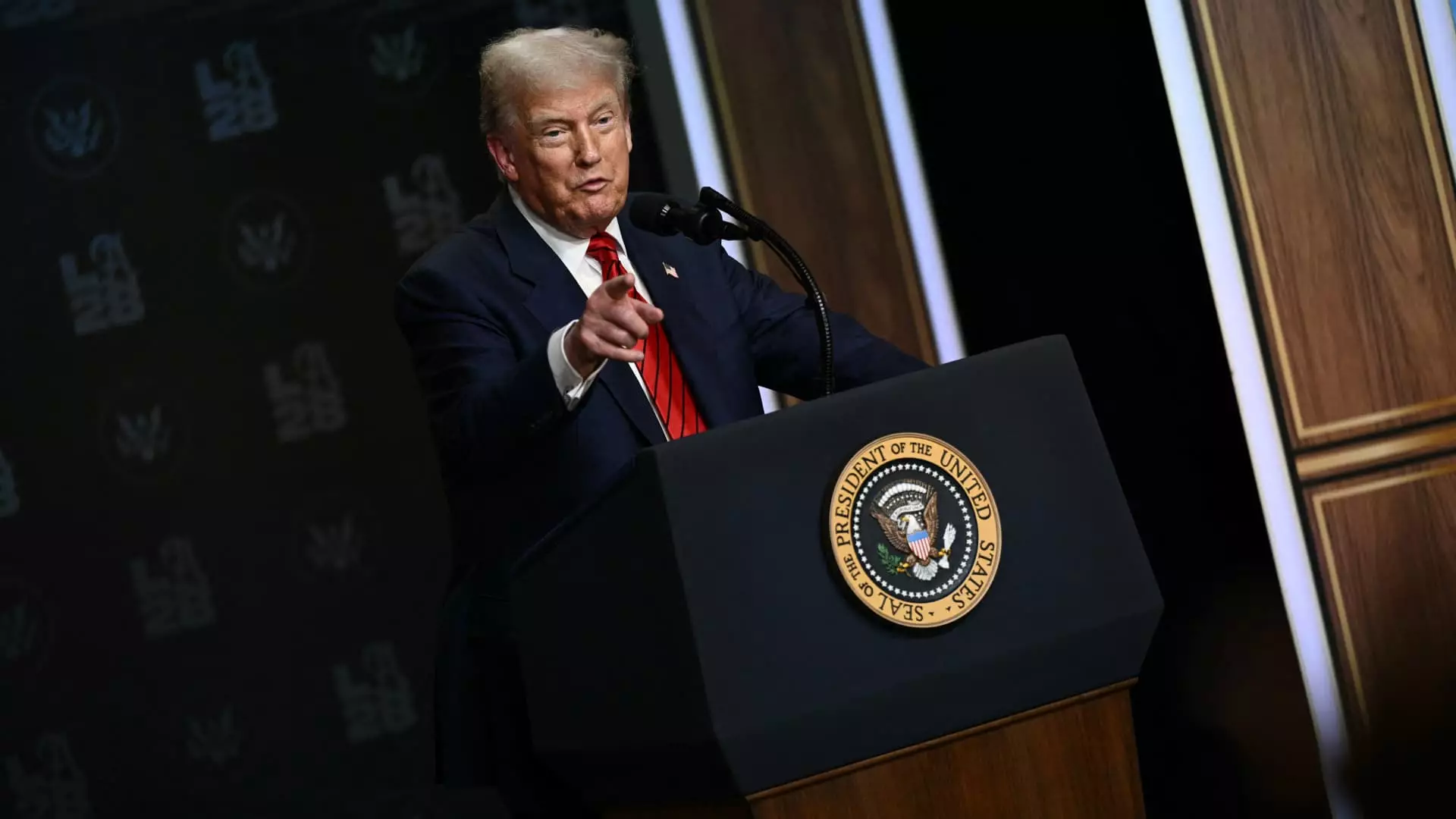In recent political discourse, the European Union’s pledge to invest an extraordinary $600 billion into the United States has been hailed as a monumental achievement, a symbol of transatlantic cooperation. Yet beneath this optimistic veneer lies an uncomfortable truth: this promise is more a political spectacle than a grounded economic commitment. As critics and cynical observers argue, the EU’s declaration lacks the binding strength and enforcement mechanisms necessary to turn a non-binding statement into tangible economic gains.
The EU’s investment goal is primarily rooted in hope, not firm resolve. The European Commission, a bureaucratic institution often criticized for its perceived inefficiency, has no real power to compel national member states or private companies to follow through on these ambitious plans. The mention of private sector footing the bill adds an extra layer of uncertainty—ultimately, individual corporations will decide whether to invest, and their decisions will hinge on market conditions, political stability, and international relations, rather than a warm and fuzzy commitment from Brussels.
This situation exemplifies how political narratives tend to overpromise while underdelivering. It is easy for leaders to tout large numbers like $600 billion as evidence of renewed partnership, but the actual process of investment is complex, unpredictable, and fraught with hurdles. Such pledges often serve more to appease domestic constituencies and bolster diplomatic optics than to prompt immediate economic activity.
Unreliable Foundations and Political Leverage
A closer examination reveals that the credibility of this investment pledge is deeply questionable. Historically, international investment commitments without enforceable clauses often dissolve into empty rhetoric once political winds shift. With the EU’s non-binding promise, the real risk lies in the fact that it is vulnerable to diplomatic fluctuations and internal disagreements within Europe itself. The inability to assure domestic industries that these promises will be honored tarnishes the pledge’s credibility.
The timing of the EU’s commitment, ending in 2029—coinciding with the end of Donald Trump’s presidency—further complicates its prospects. Would a future U.S. administration continue to uphold this pledge, or would it become a bargaining chip in larger geopolitical negotiations? The vagueness surrounding the timeline suggests that, even if companies initially show interest, the unwavering realization of this plan is highly uncertain.
From Trump’s perspective, this situation offers an interesting strategic gamble. He perceives this non-binding commitment as potential leverage, a political tool to pressure Europe by threatening to escalate tariffs if the investment does not materialize. The suggestion of tariffs at 35% as a fallback is indicative of a transactional, rather than cooperative, approach to international relations. It exposes the precarious balance the U.S. is maintaining—using economic threats to extract concessions under the guise of mutual benefit.
The Reality of Investment and Economic Complexity
In practical terms, the prospects for the EU’s investment plan face numerous challenges. First, the nature of multi-billion dollar investments—especially in sectors like manufacturing, technology, and pharmaceuticals—requires certainty and stability. However, the current political climate, characterized by policy uncertainty, unpredictability in trade regimes, and shifting international relations, dampens investor confidence.
Most importantly, the EU’s pledge hinges on private sector action—not governmental force—making its realization contingent on corporate strategic decisions that are influenced by a broad array of economic signals. The global economic landscape is also fraught with risks: fluctuating markets, potential global recessions, and emerging geopolitical tensions all threaten to derail planned investments. Even if companies are interested, delays and cancellations are inevitable in such a volatile climate.
Furthermore, the economic significance of this investment hinges not only on total figures but also on where and how funds are deployed. targeted sectors like manufacturing or technology could potentially energize local economies, but only if those sectors see a positive business environment and stable policies—conditions that are far from guaranteed in coming years.
The Unsettling Future of Transatlantic Relations
Ultimately, the EU’s investment pledge is as much a political signal as it is a market contribution. It embodies the fragility of international agreements that are rooted more in diplomatic posturing than in enforceable obligations. The fact that European officials had to gather non-binding statements from industries underscores the symbolic nature of this promise.
For critics, this entire episode exemplifies how political narratives function in modern geopolitics: as tools to mask underlying disagreements or to stall broader conflicts. The EU and the U.S. are engaged in a delicate dance—each side framing their actions as mutually beneficial, but the reality is far more uncertain. The risk for the EU is that its reputation for reliability is compromised if these promises remain unfulfilled, further weakening its position in future negotiations.
From a liberal-centered vantage point, skepticism towards such ambitious commitments is warranted. It reminds us that genuine cooperation must be based on transparency, enforceability, and mutual trust—elements sorely lacking here. Until concrete, binding agreements replace these rhetorics and empty promises, the “investment” remains an illusion, an alluring spectacle that distracts from the true work of building sustainable, balanced partnerships.


Leave a Reply